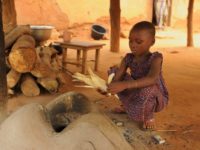I’ve been putting off writing this post. There are some things that are just easier not to think about.
They’re called “throw-aways,” people whom the world has no use for. Children who don’t have anyone to feed them, youth with no identification papers, people with no options. So the world finds a use for them.
There are more slaves in the world today than there were in the entire trans-atlantic slave trade of the 1800s. Approximately 1.2 million children are trafficked each year into exploitive labor, such as agriculture work, prostitution, or child soldiers. 2 million children currently are forced to work as prostitutes.
When I first heard about this several years ago, I found it hard to believe. I was living in Amsterdam, and I’d walked many times down the narrow canals of the Red Light District, known for the prostitutes standing and advertising their wares in the windows.
It would make my skin prick to see the European and American businessmen grouped outside the windows in their button-ups and ties, jeering and leering at the women. Amsterdam is one of the destinations for young women trafficked into prostitution. Some of those women who keep the red lights burning in Amsterdam are slaves.
Around the world, the situation is bleak. In Asia, countries like India and Myanmar and Thailand are from where many pimps get their wares. There are plenty of poor here, children no one would care or notice if they were to go missing. Little girls and boys whose parents can’t feed them, who are from minority races or tribes that aren’t valued in the larger society. The parents are offered money in exchange for their children. Sometimes the children are promised jobs working in restaurants or as maids. A better life. Many children aren’t sold, but kidnapped. As children walk, as they do each day, several miles to go to school or get water, they are an easy target.
Whether children are kidnapped or sold, some are then transported to brothels in big cities. They are abused and raped and sold as “companions” for western tourists over and over again.
Other children, in places like Africa, become soldiers, sex slaves of warriors, or workers in fields. I’d like to think that this only happens in faraway countries, but America is not exempt. Not only are American tourists some of the consumers of such “goods” abroad, human trafficking and sex slavery is alive and well in America.
What are we to do with the knowledge of such atrocities?
Abroad, Compassion promotes child advocacy. Country offices and projects promote advocacy and hold advocacy events to raise awareness of the value of children with parents and in the community.
For example, Compassion Honduras held events throughout the country this spring to educate children about their rights and how to respond to abuse and to educate parents, the church, the community, and local leaders about the value and rights of children.
When I first heard about these advocacy events, I didn’t really get it. Children are valuable — seems like a no-brainer, so why do we need an event to tell others that? But clearly not everyone knows and practices this message. Through community advocacy efforts, Compassion-assisted churches are bringing Christ’s message that children are infinitely valuable to transform communities.
Compassion International Asia has also developed a masters program in holistic child development to train and support those who work on the frontlines of vulnerable children, which is being implemented in seminaries throughout Asia.
At home, we can be child advocates ourselves, continuing to raise awareness of the needs and value of children in this country and abroad.
If you’re an American male, you can Take the Pledge to not participate in any way in the sex trade and protect the women and children around you.
If you want to learn more about human trafficking, visit International Justice Mission, one of Compassion’s ministry partners.







23 Comments |Add a comment
The truth is that the perpetrators who go on these pedophilia tours are usually men. The abused, however, are usually both boys and girls. It’s sick. Most of the men are Westerners or Arabs. I know there are women who abuse boys, but the worldwide trend is that women are being abused by men, oppressed by men, honor killings, etc. But maybe we can all take the pledge so that it’s not only males who pledge to stand up for women. I’ve stood up for several abused children and gotten the police involved, and I’m a woman…
-Steise
These children are “companions for western people?” have they lost their minds!!!?!!! It is stories like this that have me praying for Jesus to come quickly!
When our Compassion child in Ghana told us we would come to Ghana and serve in his country, we began to do research on how we could serve children at risk in Ghana… and this is exactly how we stumbled upon the modern-day slavery horrors.
We were moved into action — providing a school for rescued child slaves in Ghana and negotiating more rescues — in an area I pray, pray, pray, pray Compassion will serve one day soon, for the many children still awaiting hope.
This isn’t an impossible situation to bring to an end — we can serve Him by being His hands and feet for these children. Our God is a God of infinite possibility.
A sponsor on OurCompassion shared how his recent letter from his 4-year old child in India said that she was scared. Her friend had disappeared for 4 days. Someone had kidnapped her and been trying to sell her and now the sponsored child is scared that someone will take her.
It horrifies me that someone would be so base to treat children in that way. Thank you for reminding us to pray for these little ones.
I know Love146 seems to do some good work in this area.
Personally, I always wanted to start Love357… showing love to exploited girls by putting high velocity lead into their traffickers. 🙂 But that’s just me.
Absolutely, men are survivors of sexual abuse as well and may God grant healing to us all…one of the books directed at male survivor of sexual abuse is “Victims No Longer”…
I pray that we find unity to all seek God’s holy will for us all, regarding our bodies and our sexuality.
The following article focuses on women, but remember the men killed, too…we all are suffering from sin in this world. May God have mercy and help us all, Amen
http://www.thestar.com/news/insight/article/645832
Wow.. thank you for posting (and RE-posting) this powerful blog entry. I knew that there was child slavery but I didn’t know the EXTENT that exists. I didn’t know that there are more slaves today than in the 1800’s.
Thank you for this so that we can all be aware and look for ways to change this sad sad situation. Thank God for Compassion and other ministries like them that at least spare SOME of the children out there from this fate.
Thank you, Zach. I haven’t seen this one before; I’ll have to check it out.
Hey Amber,
I recommend that you check out “Not for Sale” by David Batstone. I think you will find it a good read.
Thank you for your reply Amber. No worries—I understand—you used that terminology because it was the terminology required by the organization—it’s not your terminology. And maybe I’m taking too staunch a line here—but I think I (we) must very carefully choose the organizations I (we) support or promote (and how they message their causes), in the same way I carefully chose Compassion amongst other similarly-minded organizations because of some very important distinctions that may have seemed minor to others. To me, it’s the little differences—that end up being big differences.
And thank you for the kind heart and earnestness shown by apologizing—but know that no apology is needed—you have done no wrong. I respect your blog post and respect the advocacy, concern, and frankly, compassion that you show (to Compassion aided children and towards the hurting in general). What I’m doing is just trying to think and learn reflectively along the way as we reach towards those who hurt so that we can be enabled to reach even further and with an even stronger arm.
PS—Gayle, thank you for sharing. I agree, do all you can for Denver! May God richly bless your effort. Vicki, thank you for the recommendation, I’ll be sure to check out Beyond Betrayal: Taking Charge of Your Life. And thank you for your encouragement Chris, its good to hear men interested in this issue.
Thank you so much for your comment, “rather not mention.”
I agree with you wholeheartedly. The victims and perpetrators of abuse are of both sexes, although much stereotyping does exist.
The reason I say “if you’re an American male” is simply because this organization “Defenders,” with whom you can “Take the Pledge,” is a coalition of and for American males. (I don’t know of a similar organization with a pledge you can take for both sexes, although there are various organizations you can declare yourself as a child advocate or abolitionist.)
I apologize deeply for what this sentence may have implied; it surely was not my intent.
Dear Rather Not,
I hope you check back here, again. If you would still like some resources, I have a recommendation for a book by William Pollock and Richard Gardner. The title is Beyond Betrayal: Taking Charge of Your Life…. You can find it on Amazon.com. A number of related books are shown on the same page, and some may be good. I wouldn’t know; this one comes recommended by a forensic psychologist who strongly supports listening to our wounded boys and men.
Thank you. Thank you for sharing. As the mother of a 5 month old boy your story definitely touched my soul. I know that girls and women are not the only ones being abused and I agree it takes all the adults in a community paying attention to these things to keep kids safe.
I went to a forum last year regarding the sex slave industry and it broke my heart to learn that these problems are just as bad here in the US. In fact, the group that led the forum from a local university in Denver said that when a political convention comes to town that they truck in these women and children to service the people at the convention. It happens in cities that both political parties hold their conventions in.
This year the democratic national convention is going to be held in Denver. That’s my backyard. I’m hoping we can do something about it.
@ Rather not mention
Amber is “camping in the great wilds where there are no computers or cell phones.” She’ll be back in the office on July 28, and I know that she will reply.
Thank you for sharing with us.
Personally, I don’t view your opinion as “dissenting.” I view it as enlightening. I recognize the truth in what you say and want to honor that. May Christ strengthen you.
Hi Amber,
Thanks for your post. I have a question though–and I find this a common problem when discussing sexual predation.
Why does your post say, “If you are an American male,” take the pledge? Why is this pledge only designed for males? Do you not think you are missing part of the problem then….or enabling a different problem to continue and proliferate?
I am an American male, and I was sexually abused for 17 years as a child until I was old enough to run away after one particular time when my mom had been threatening to kill me. (She had already cut off my pinky and other things). I was sexually and physically abused by my mother (and not my father) from 3 years old to 20 years old. And so were both my brothers.
I had a very difficult time working through this sexual abuse because most books (I’m referring also to Christian books here–I am Christian) on the topic used the pronoun “he” to refer to the aggressor and the pronoun “she” to refer to the victim. Kinda makes it hard to deal with the shame of abuse or relate to the books when trying to access already buried deep-down inside emotions.
Well, those pronouns are a stereotype, a prejudice, and an invalidation and rejection of the experience of the many sexually abused males I know who were abused by females who hid their experience out of shame, fear, and society’s unwillingness to listen or believe them.
When I look for help or want to advocate for the stopping of sexual predation globally, I find things such as:
“If you are a male, take the pledge that you will never participate in the sex trade and protect the women and children around you.”
Well who protected me (the male) from my mom (the woman) around me??
I am convinced the above stereotyping about sexual abuse leads contributes to the lack of protection for male children from the women around them.
The above attitude contributed (in part) to no one stepping in and stopping my mother’s molestations and attacks on myself and my brothers. Eventually I ran away and was homeless for some time as I realized even death (standing up) would be better than always living on my knees before my mother’s abuse. It was hard to find help as a male saying he had been sexually abused by a female—many just did not believe me or said that just doesn’t happen.
All I am asking is that we begin to say:
“Please take this pledge” (with no male qualifier) instead of “If you are a male, please take this pledge”
If we do not, I fear we will continue to minimize and enable the sort of sexual predation I experienced—abuse that goes unnoticed and unrecorded in its frequency due to the shame imposed upon its victims by the way we speak of it, and because of the way we blind society to its existence by implying it does not exist or is not a current problem.
I respect Compassion immensely, I sponsor and advocate, and I respect your work Amber. I don’t like giving dissenting opinions, but I feel like I must here. Thank you for listening to my opinion.
I pray that God will richly bless your work and help all of us to stop anyone from being treated as a throw-away.
Thank you, Mike, Dan and Amber. I will follow up on the various resources you have offered.
Hi Vicki, What happens to the children who are rescued varies greatly, depending on the country. love146 (formerly Justice for Children International) funds care centers in Southeast Asia to rehabilitate girls rescued out of slavery. In some countries, especially Muslim countries, if a girl is returned home, she will be treated as a criminal or outcast. The US does have some of the better laws in the world protecting trafficking victims. When crack-downs are made, those trafficked are treated as victims, not criminals, and they are provided the resources to create a safe life in the US. Here’s one of the US government’s site on the topic: http://www.acf.hhs.gov/trafficking/rescue_restore/index.html
If you’re not familiar with the issues of child labor then you can find out more at http://www.stolenchildhoods.org/mt/index.php
The video “Stolen Childhoods” is worth watching.
Those in power control those who have no power.
Different countries do different things with the trafficked people they rescue (I’m sure Amber can tell you more). The various countries are actually graded by international organizations on how well they deal with victims of slavery. Though it’s sad how much money America contributes through our patronization of things like sex tourism, the US is rated very high in its care for victims of slavery (B+ I believe). Many countries simply treat them as criminals or deport them, sending them right back into the system or loading them with even more troubles, or fail to give them temporary residence or even basic care (check out The Future Group’s Website, in particular their 2006 report “Missing the Mark”). The fear of what might happen to them if they’re caught is one of the weapons their abusers use to keep their victims in slavery.
Amber, I have heard bits and pieces about child slavery, and I’ve seen episodes on various TV dramas focused on the problem. But, like you, I didn’t want to believe it was a real problem–especially not *here*. So thank you for doing the hard thing and posting about it.
Now I have a question, raised by my reading of the CNN article you linked to: What happens to the children who are rescued? The FBI has rescued (I think the man said) over 400 children in the five-year effort; has anyone been following their lives, since then? How have they gotten along, once they have been returned to their former lives?
Amber–Did you see the films about child slavery on abc’s nightline? http://abcnews.go.com/search?searchtext=child%20slaves&type=
When I first heard about the prostitution rings in Thailand, I immediately sponsored a girl there [this was in 1996, although I had been sponsoring a boy in Haiti as well since 1988]. I had never realized until then that these girls were being kidnapped, often, to work in the cities as prostitutes and slaves. I ssked for a little girl from Thailand, in order to save at least one girl from that horrible lifestyle. I still sponsor this girl today — in fact, she’s a member of the Leadership Development Program. Isn’t God amazing?